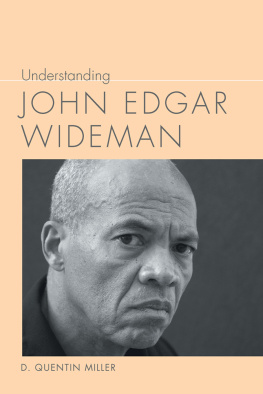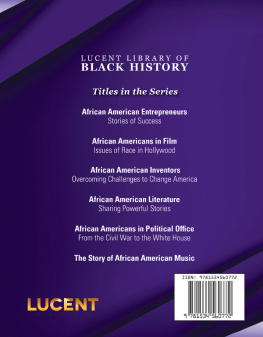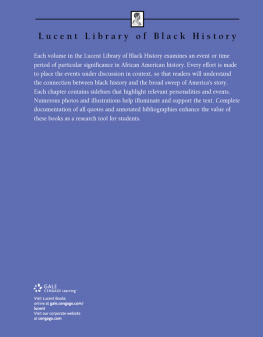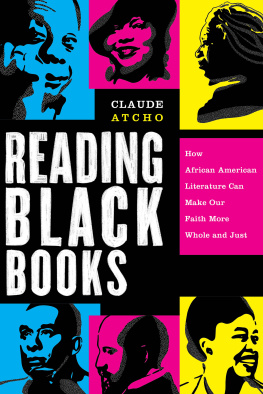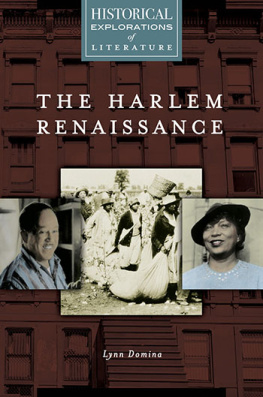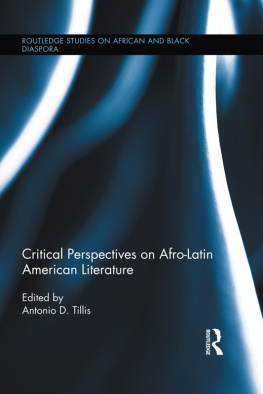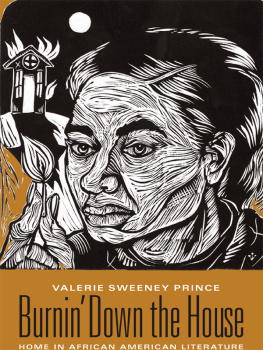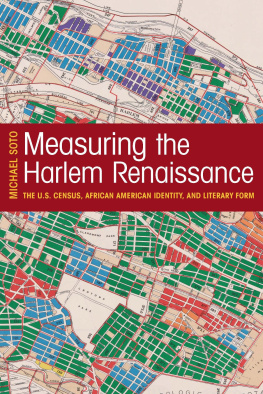THE ROUTLEDGE INTRODUCTION TO AFRICAN AMERICAN LITERATURE
The Routledge Introduction to African American Literature considers the key literary, political, historical, and intellectual contexts of African American literature from its origins to the present, and also provides students with an analysis of the most up-to-date literary trends and debates in this field. This accessible and engaging guide covers a variety of essential topics such as:
The origins of African American literature
The emergence of slave narratives
The Harlem Renaissance
Mid-twentieth-century black American literature
Literature of the Civil Rights and Black Power eras
Contemporary African American writing
Key theoretical debates within the field
Examining the relationship between the literature and its sociopolitical contexts, Quentin Miller covers key authors and works as well as less canonical writers and themes, including literature and music, female authors, queer writing and transnational black writing.
D. Quentin Miller is Professor of English at Suffolk University, USA.
ROUTLEDGE INTRODUCTIONS TO AMERICAN LITERATURE
Series Editors: D. Quentin Miller and Wendy Martin
Routledge Introductions to American Literature provide a comprehensive overview of the most important topics in American literature in its historical, cultural, and intellectual contexts. They present the most up-to-date trends, debates, and exciting new directions in the field, opening the way for further study.
The volumes in the series examine the ways in which both canonical and lesser known writers from diverse cultural backgrounds have shaped American literary traditions. In addition to providing insight into contemporary and theoretical debates and giving attention to a range of voices and experiences as a vital part of American life, these comprehensive volumes offer clear, cohesive narratives of the development of American literature.
The American literary tradition has always been flexible and mutable. Every attempt to define American literature as a static body has been thwarted by the nature of the subject, which is like its nations ideals pluralistic, diverse, democratic, and inventive. Our goal in this series is to provide fresh perspectives on many dimensions of the American literary tradition while offering a solid overview for readers encountering it for the first time.
D. Quentin Miller and Wendy Martin
Available in this series:
The Routledge Introduction to African American Literature
D. Quentin Miller
The Routledge Introduction to American Modernism
Linda Wagner-Martin
The Routledge Introduction to American Women Writers
Wendy Martin and Sharone Williams
THE ROUTLEDGE INTRODUCTION TO AFRICAN AMERICAN LITERATURE
D. Quentin Miller

First published 2016
by Routledge
2 Park Square, Milton Park, Abingdon, Oxon OX14 4RN
and by Routledge
711 Third Avenue, New York, NY 10017
Routledge is an imprint of the Taylor & Francis Group, an informa business
2016 D. Quentin Miller
The right of D. Quentin Miller to be identified as author of this work has been asserted by him in accordance with sections 77 and 78 of the Copyright, Designs and Patents Act 1988.
All rights reserved. No part of this book may be reprinted or reproduced or utilised in any form or by any electronic, mechanical, or other means, now known or hereafter invented, including photocopying and recording, or in any information storage or retrieval system, without permission in writing from the publishers.
Trademark notice: Product or corporate names may be trademarks or registered trademarks, and are used only for identification and explanation without intent to infringe.
British Library Cataloguing in Publication Data
A catalogue record for this book is available from the British Library
Library of Congress Cataloging in Publication Data
Names: Miller, D. Quentin (Daniel Quentin), 1967
Title: The Routledge introduction to African American literature /
D. Quentin Miller.
Description: New York : Routledge, 2016. | Series: Routledge introductions to American literature | Includes bibliographical references and index.
Identifiers: LCCN 2015030103| ISBN 9780415839648
(hardback : alk. paper) | ISBN 9780415839655 (pbk. : alk. paper) |
ISBN 9780203771013 (ebook)
Subjects: LCSH: American literature--African American authors--History and criticism.
Classification: LCC PS153.N5 M5 2016 | DDC 810.9/896073--dc23
LC record available at http://lccn.loc.gov/2015030103
ISBN: 978-0-415-83964-8 (hbk)
ISBN: 978-0-415-83965-5 (pbk)
ISBN: 978-0-203-77101-3 (ebk)
This small book about a big subject started as a collaborative project with Doug Field, who realized early on that he had too much on his plate and backed out, reluctantly and politely. Id like to begin by thanking him for getting the ball rolling. I would also like to thank my series co-editor, Wendy Martin, for all of her patience and goodwill throughout the process. At Routledge, a big shout-out to Polly Dodson for developing the series with us and to Liz Levine for filling in while Polly was on parental leave.
During the summer of 2012 I was fortunate enough to spend three weeks at the Pennsylvania State University for an NEH Summer Fellowship on contemporary African American literature. Lovalerie King organized a stellar group of scholars, led by Trudier Harris, Maryemma Graham, and Dana Nelson, who guided our discussions for three memorable, valuable weeks. Id like to thank all of them and also all of my fellow institute scholars: space prevents me from listing everyone here, but you know who you are and how much I value your insights and friendship.
I would also like to thank Claudine Raynaud of the Universit Paul-Valry in Montpellier, France for arranging a visiting professorship for me in the summer of 2013 where I was able to make substantial progress on this volume. Un million de merci!
At Suffolk University I appreciate, as ever, the support of Dean Ken Greenberg, in many tangible and intangible ways. One of the tangible ways was through providing the funding for an extraordinary research assistant in 20132014, Mary Boutet, whose attention to detail, organizational skills, and eye for editing are tremendous. I owe a world of gratitude to Professor Emeritus Ed Clark for initi-ating and maintaining the Clark Collection of African American literature at the Sawyer library. This resource allowed Mary and me to conduct most of the research we needed without leaving campus. Finally, Kelly Hoarty provided her trademark cheery clerical support whenever I asked for it, both for this volume and for the James Baldwin conference Claudine and I hosted in France while I was completing it.
I dedicate this book to my students at Suffolk University, past, present, and future.
We younger Negro artists who create now intend to express our individual dark-skinned selves without fear or shame. If white people are pleased we are glad. If they are not, it doesnt matter. We know we are beautiful. And ugly too. If colored people are pleased we are glad. If they are not, their displeasure doesnt matter either.
Langston Hughes, The Negro Artist and the Racial Mountain, 1926
The Negro writer who seeks to function within his race as a purposeful agent has a serious responsibility. In order to do justice to his subject matter, in order to depict Negro life in all of its manifold and intricate relationships, a deep, informed, and complex consciousness is necessary; a consciousness which draws for its strength upon the fluid lore of a great people, and moulds this lore with the concepts that move and direct the forces of history today.
Next page

